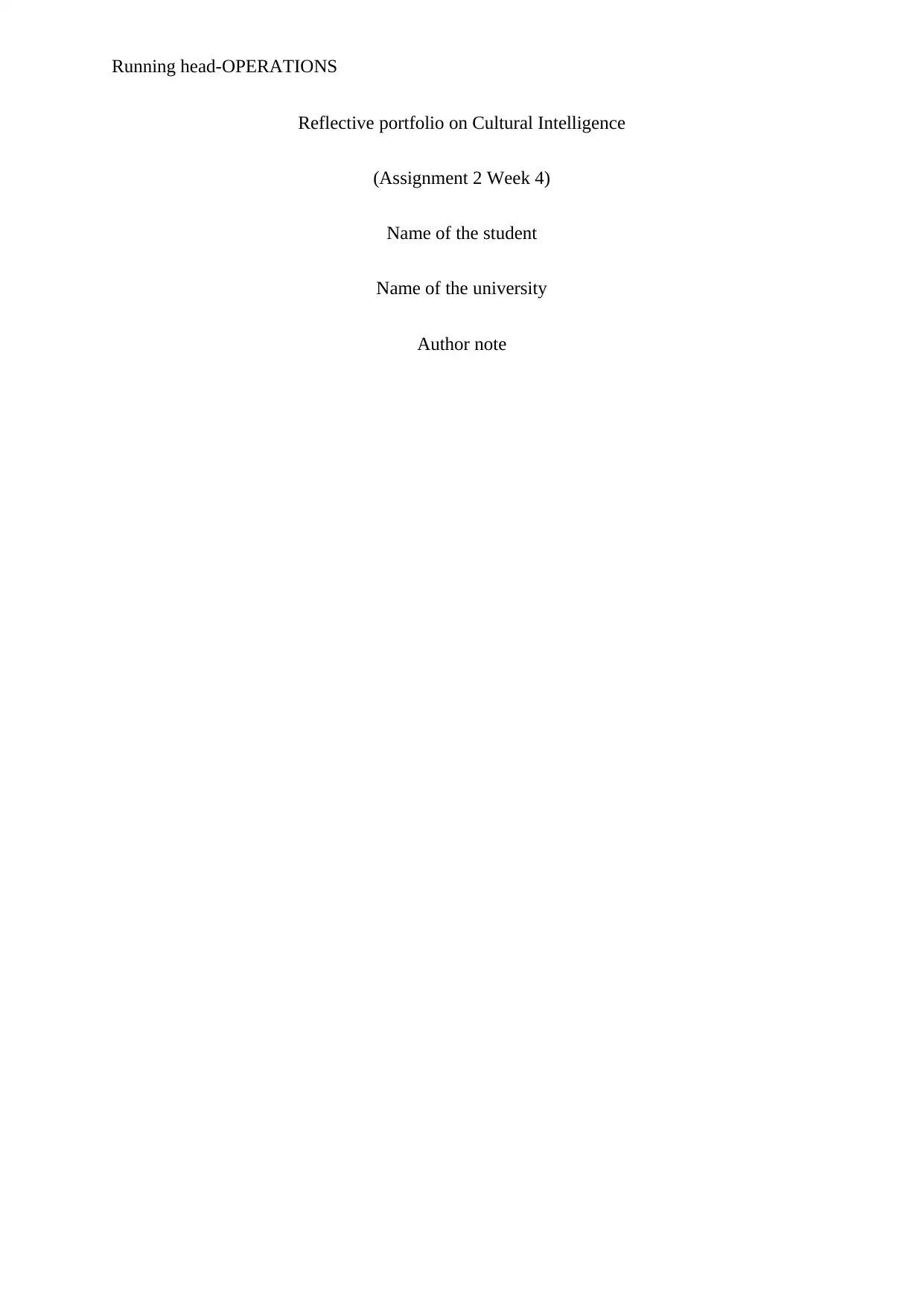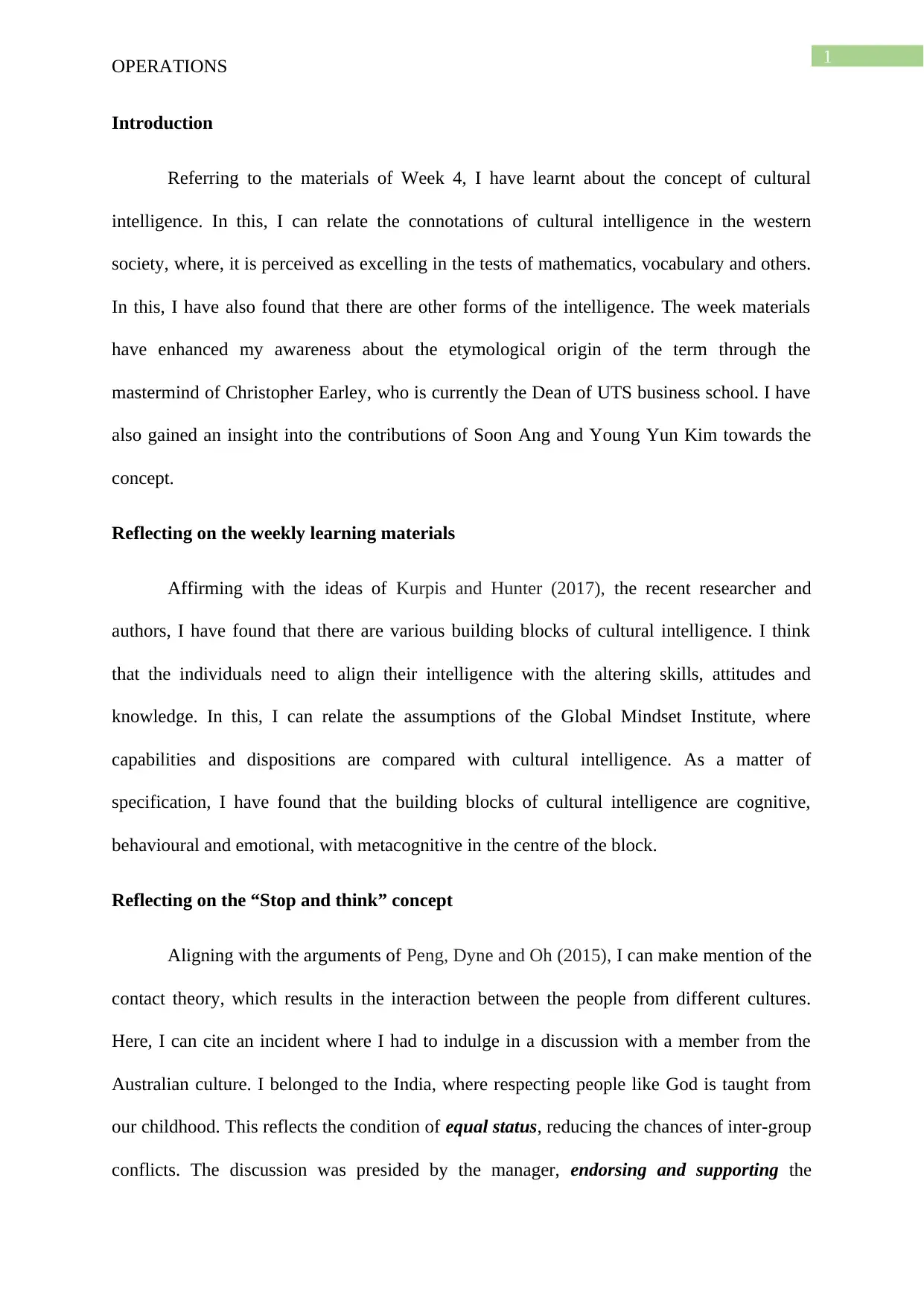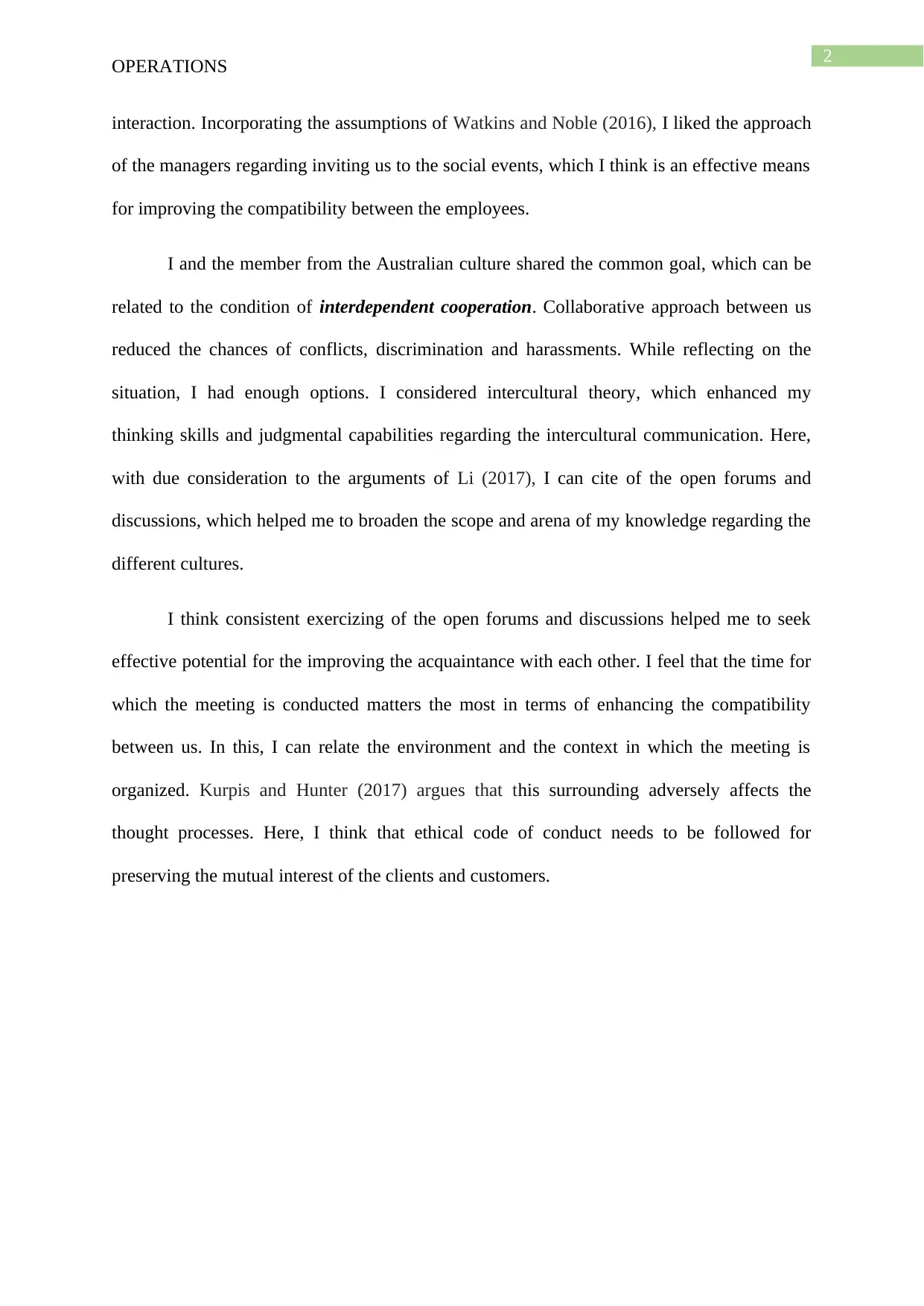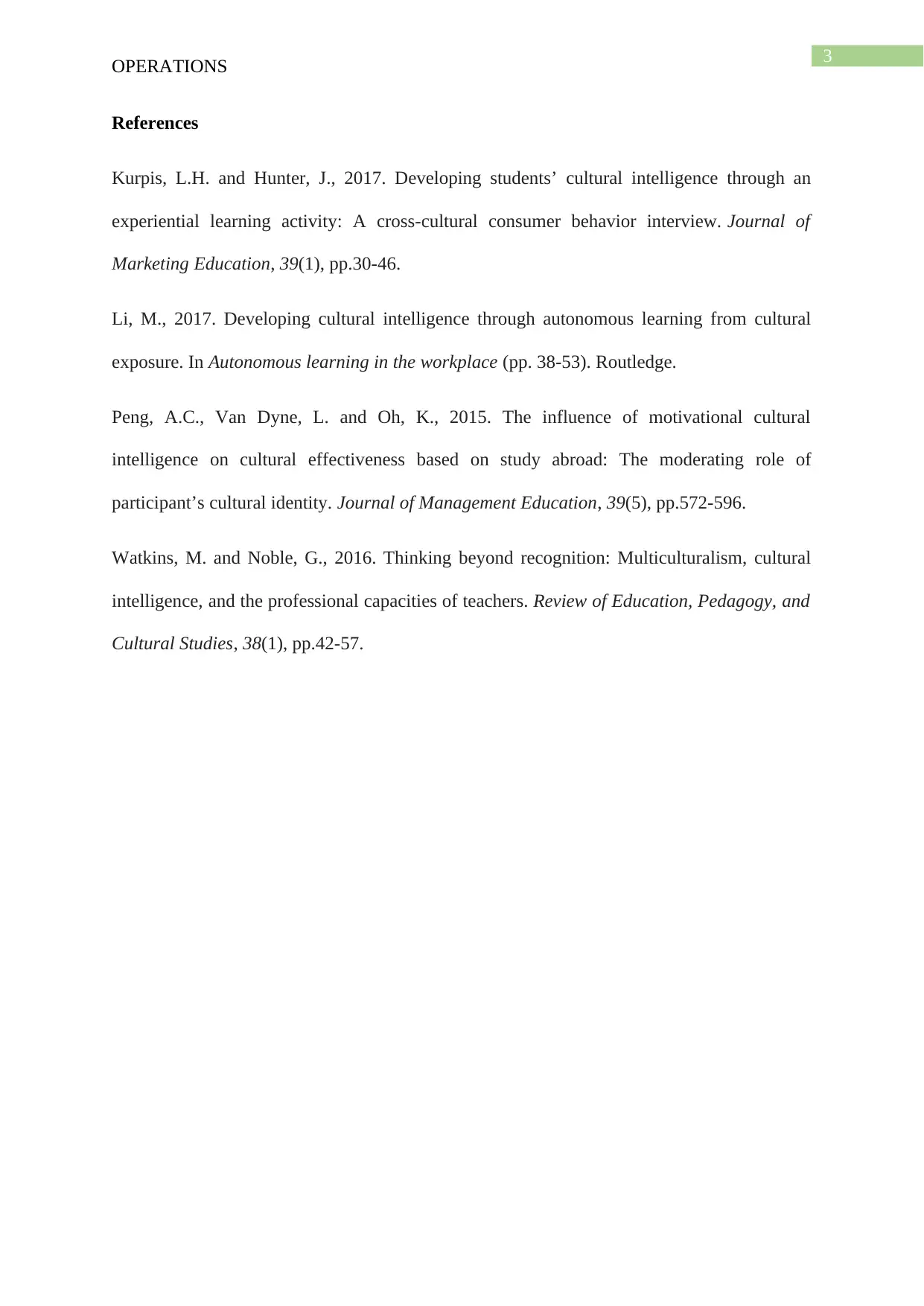UTS Operations: Reflective Portfolio on Cultural Intelligence - Week 4
VerifiedAdded on 2023/01/17
|4
|793
|98
Report
AI Summary
This assignment is a reflective portfolio focusing on the concept of cultural intelligence, drawing from the week 4 materials of a Managing in International Contexts course. The student explores the meaning of cultural intelligence in Western society and its various forms, referencing the work of Christopher Earley, Soon Ang, and Young Yun Kim. The portfolio examines the building blocks of cultural intelligence—cognitive, behavioral, emotional, and metacognitive—and relates these concepts to personal experiences, such as interactions with individuals from different cultures. The student reflects on the application of contact theory and intercultural communication strategies, including open forums and discussions, to improve cross-cultural understanding and compatibility in a professional setting. The report emphasizes the importance of ethical conduct and collaborative approaches in managing international contexts, supported by references to academic research on the topic.
1 out of 4











![[object Object]](/_next/static/media/star-bottom.7253800d.svg)